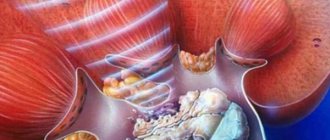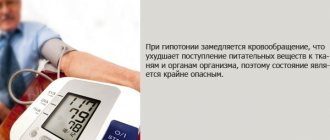A good mood, the predominance of positive emotions - all these states are largely determined by serotonin; it is often called the “happiness hormone”. This substance is synthesized by the pineal gland (an endocrine gland located in the brain) and the intestinal mucosa.
A lack of neurotransmitter manifests itself in the form of a depressed, depressed state. A person becomes hot-tempered and irritable, he develops panic attacks, anxiety, and melancholy.
There are many natural ways to increase your levels of this biologically active substance. In case of severe disorders, they resort to extreme measures - prescribing serotonin tablets .
The essence of the issue
When the pace slows down or there is a lack of stimulation, fatigue appears, needs are not met, others overtake you, etc. This dynamic ends in long-term stress. But a lack of joy is also observed in insomnia, in postoperative patients, in sexual dysfunctions, etc.
And since modern people are accustomed to immediately grabbing pills at the slightest ailment, minimizing their condition, the question of serotonin pills arises.
But the question is not so simple. The problem is that pure serotonin tablets simply do not exist, because such a tablet will be dissolved in the stomach without a trace and will not enter the bloodstream at any dose. Serotonin tablets and serotonin preparations are quite different compounds.
Therefore, it is more correct to talk not about pure joy hormone pills, but about serotonin preparations. They contain a synthetic analogue of neuromitter.
Symptoms of deficiency
A decrease in serotonin irritates nerve receptors, which leads to severe pain.
- Libido decreases.
Men quickly complete sexual intercourse, and women do not experience pleasure from sex. - The secretion of gastrointestinal juice decreases
, so a person eats less and constantly craves sweets and buns. - Sleep is disturbed.
It’s difficult to fall asleep at night, I suffer from insomnia, and I feel drowsy during the day. - The mood changes.
Hysterics, anxiety, emotional instability, irritability, and neuroses are possible. - Weakness, constant fatigue, lethargy.
- The sensitivity threshold increases.
- Immunity decreases, and colds often worsen.
General concepts about serotonin
The substance is synthesized in the pineal gland (epiphysis) and about 90 percent of it is produced by the intestinal mucosa. Its precursor is the amino acid tryptophan. According to its chemical structure, serotonin is not a hormone. It is a neurotransmitter. A neurotransmitter works differently from a hormone.
The latter is responsible for any planned and long-term changes in the human body, for example, an increase in height, the appearance of secondary sexual characteristics. And mediators are always responsible for high-speed reactions, for example, metabolism.
In other words, the compound only promotes the production of the hormone of joy, but is not itself such. A neurotransmitter serves to transmit electrical impulses between neurons or from nerve cells to muscle cells.
The process occurs in the synaptic cleft. With a deficiency of the neurotransmitter, an imbalance occurs, which, among other things, is expressed in depressive states. They are also accompanied by a decrease in the threshold of pain sensitivity, i.e. the slightest irritation causes severe pain.
In addition to a positive mood, the hormone is responsible for the normal functioning of the gastrointestinal tract, memory, thermoregulation, circadian biorhythms, sleep and breathing, speed of movement, blood pressure and blood clotting.
Prevention and advice
In order to be healthy and happy, you need to follow a few simple rules:
- Follow a daily routine. Try to clearly plan every day, go to bed and wake up at the same time, even on weekends. Remember that good, long sleep will keep you healthy and youthful for many years;
- Don't overwork yourself. If you start to get tired during any work, rest. Take a break and do a short warm-up. This will allow you to save strength for further work;
- Eat right. Eliminate fast food, salty and sweet foods, and carbonated drinks from your diet. Eating enough vegetables and fruits will help you stay in good shape;
- Always remember the dangers of alcohol and smoking. You should not succumb to the influence of society. Have your own opinion on this matter. And let it be correct.
- Stop dieting. Don't starve yourself by following fashion. Remember that everyone is beautiful in their own way and there is no point in striving for a non-existent ideal. And a lack of essential amino acids will only lead to loss of strength and depression;
- Play sports. Not only will you be able to get in shape, but you will also increase your serotonin levels. Regular exercise will give you health and excellent shape;
- Don't get stressed. Try your best to avoid stressful situations, always maintain Olympic calm, smile and enjoy life!
Reasons for the shortage
Provoking factors:
- lack of sunlight, so the mood drops in the autumn-winter period and little of it is produced at dusk;
- poor diet low in tryptophan;
- smoking and alcohol;
- stress.
These moments do not reduce, but only trigger disruption of the receptors of the specified neurotransmitter, low intake of the amino acid tryptophan, disruption of the synthesis of the monoamine serotonin, which is directly involved in the transmission of impulses. A vicious circle is formed - under stress, problems begin, and they create stress.
Indications for the use of serotonin drugs
A lack of serotonin may be indicated by:
- difficulty concentrating, absent-mindedness;
- lack of libido and decreased mood;
- nervous breakdowns;
- insomnia, loss of appetite or gluttony;
- obsessive thoughts of suicide; decreased pain threshold.
SSRIs were created to increase the production of serotonin.
Taking pills is an extreme measure, prescribed only by a doctor, without self-prescription.
You may not be aware of the contraindications. Tablets are the heavy artillery.
Before switching to them, you should try to establish proper nutrition and lead an active lifestyle, especially in the absence of mental illness. The mechanism of action of the drugs works to increase the concentration of the substance in the brain structures and release it to increase the level in the blood. Positive dynamics are noted quickly: mood improves and there is a surge of energy.
These drugs are not classified as central nervous system stimulants, and the functioning of internal organs is not impaired when taken.
Which doctor should I contact for a prescription for antidepressants?
You cannot choose your own serotonin drug: only a competent psychiatrist can choose the optimal medicine and its dosage. Depending on the diagnosis, gender, age, and the presence of certain chronic diseases, the dosage will be different.
Taking serotonin uptake drugs is especially dangerous if you are under 18 years of age. Many girls take such medications in secret from their parents, using them to lose weight and achieve an anorexic physique. Almost all antidepressants strongly suppress appetite; this effect allows you to lose weight very quickly, even to the point of exhaustion. Unscrupulous pharmacies often dispense prescription drugs to children at inflated prices. It is unacceptable to take such medications on your own: this can provoke psychosis, delirium, and nervous breakdowns.
In some cases, a clinical psychotherapist can write a prescription if they are qualified to do so.
How the drug works
Representatives of this group of drugs are SSRIs - selective serotonin reuptake inhibitors. They saturate the body with the synthetic analogue of the same name, block the reuptake process in the synaptic cleft and raise the level of the substance to normal.
Due to SSRIs, this process is absent and the neurotransmitter, after performing its function, does not return to the cell that sent the signal.
It goes further into the bloodstream and thus there is an increase in the hormone and a gradual increase in its level. Also, due to the lack of return, new portions of the neuromitter are not produced, the resulting signal from the cell proceeds sequentially, and those inhibited by depression acquire activity. The content of native monoamine increases.
Depression softens, becomes easier and gradually goes away. The half-life of the drugs is at least a day, excretion from the body occurs through the kidneys.
The advantage of these drugs is that they have fewer side effects; these are the latest generation antidepressants.
SSRIs
SSRIs increase serotonin levels by preventing the body from reabsorbing serotonin neurotransmitters. Serotonin levels in the brain remain high, which can lift your mood. SSRIs for treating depression:
- Citalopram (Celexa)
- Escitalopram (Lexapro)
- Prozac
- Paroxetine (Paxil, Pexeva)
- Sertraline (Zoloft)
- Vilazodone
Side effects of SSRIs
SSRIs have some side effects that go away over time:
- nausea and vomiting
- restlessness and agitation
- stomach upset
- diarrhea or constipation
- loss of weight or appetite
- increased sweating
- dizziness
- blurred vision
- drowsiness or insomnia
- shaking sensation
- dry mouth
- headache
- low sex drive
- erectile dysfunction
- suicidal thoughts
In some cases there may also be:
- hematomas
- hallucinations
- difficulty urinating
Side effects
The most common are nausea, gastrointestinal disorders, headaches and dizziness, the development of acute renal failure due to kidney pathology, insomnia, and tremors of the extremities.
The most popular SSRIs are:
- Fluoxetine (an analogue of Prozac) is used in the presence of a variety of depressions. It has a stimulating effect and does not have a negative effect on the heart. The effect on reuptake is negligible. Basically, the drug increases the concentration of the neurotransmitter in the brain.
- Efectin (Venlafaxine) – indications: depression and their relapses. Its main function is reuptake and regulation of biorhythms.
- Fluvoxamine (Fevarin) – most often it is combined with norepinephrine; actively participates in selective uptake and accumulates neuromitter in the brain. A course of taking the medication for at least six months is used for acute conditions.
- Paroxetine is indicated for very severe depression and phobias.
- Sertraline is considered one of the most active, no less active than Mirtazapine.
- Oprah (Citalopram) is well prescribed for apathy, phobias, depression and to prevent their relapses.
- Mirtazapine has a complex effect on the level of neurotransmitter and norepinephrine and can normalize biorhythms. It is not addictive and is often prescribed as a sleeping pill.
- The dietary supplement Fine-100 is similar in structure to a natural compound and is natural. Indicated for eating disorders and depression.
- 5-HTP dietary supplement – improves sleep, balances appetite, reduces panic and anxiety. Is a natural tryptophan supplement.
These medications should be taken with a sufficient amount of water and not chewed.
Serotonin-containing medications cannot be discontinued at once, otherwise relapses and secondary effects will develop. The duration of the course of treatment is adjusted only by the doctor. The reduction should only be gradual.
There is no consensus on which drug is preferable. Some researchers generally deny the effectiveness of SSRIs, considering it a placebo effect.
They are based on the fact that when taking these drugs, there was an 8-fold increase in the risk of suicide and an increase in aggressiveness - according to research by American psychiatrists.
But the majority consider drugs in this group to be effective. What do enhancement drugs do? Drugs that increase the hormone serotonin help stabilize the emotional background, increase stress resistance, relieve obsessive thoughts, relieve anxiety, improve attention and memory, and increase performance.
In the absence of mental pathologies, priority is still given to methods of producing the hormone naturally.
Symptoms that the hormone is elevated (serotonin syndrome)
- Manifested by increased anxiety, bowel dysfunction, convulsions, hallucinations
. - A person loses control over his actions
. First, the feeling of boundless joy intensifies. After some time, it gives way to depression and fear. Panic and hysteria develop, the person gets lost in space. The reaction to excess serotonin is manifested by incoherent speech. Signs increase within two to three hours after an overdose. - Vegetative changes are noticeable
. The heart beats faster, the pupils dilate, the temperature rises, sweat is released profusely, the mouth dries out, and the limbs go numb. These signs do not appear immediately, but one after another. - With prolonged excess, neuromuscular disorders are possible
. The muscles begin to spontaneously contract, the eyes move involuntarily, and speech deteriorates.
Addition
There are also drugs with serotonin - an ampoule version - Serotonin adipate. It does not affect mood in any way and is prescribed only as a hemostatic agent for decreased coagulation, anemia, hemorrhagic syndrome, and tumors.
Drugs and treatments containing serotonin include the infamous hallucinogen LSD, d-lysergic acid diethylamide. This is, in fact, an analogue of serotonin and it can bind to all of its receptors.
In the 90s it was widely used for “expanding consciousness.” Its possibilities have not been fully studied in the treatment of schizophrenia, depression, etc., since its production is prohibited.











